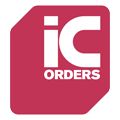Electronic manufacturing is a vast and complex field that plays a pivotal role in our modern society. From the smartphones we use every day to the advanced medical equipment in hospitals, electronic manufacturers are behind the creation of these essential products. This article delves into the intricacies of electronic manufacturing, exploring its various aspects, the processes involved, and the challenges faced by the industry.
The Scope of Electronic Manufacturing
Electronic manufacturing encompasses a wide range of activities, from designing and prototyping to mass production and quality control. It’s a multi-faceted industry that requires a blend of technical expertise, precision, and innovation.
At the heart of electronic manufacturing lies the production of electronic components. These are the building blocks of all electronic devices, from resistors and capacitors to integrated circuits and microprocessors. The manufacturing process for these components is intricate and requires a high level of precision and quality control.
Design and Prototyping
The first step in electronic manufacturing is often the design and prototyping phase. This is where ideas are transformed into tangible products. Using advanced software, engineers design electronic circuits and systems, which are then turned into prototypes for testing and refinement.
Prototyping is a crucial stage in the manufacturing process. It allows manufacturers to test their designs, identify any flaws or issues, and make necessary adjustments before moving on to mass production. This stage helps to ensure the final product is reliable, efficient, and meets the required standards.
Mass Production
Once a design has been finalised and tested, the next step is mass production. This involves the use of automated machinery and assembly lines to produce large quantities of the product. The process is carefully monitored to ensure consistency and quality.
Mass production is a complex process that requires careful planning and coordination. It involves a range of activities, including material sourcing, component assembly, and final product testing. Each of these stages is crucial in ensuring the final product meets the required specifications and quality standards.
Challenges in Electronic Manufacturing
Like any industry, electronic manufacturing faces its own set of challenges. These range from technological advancements and changing consumer demands to environmental concerns and regulatory compliance.
One of the biggest challenges is keeping up with the rapid pace of technological change. As technology continues to evolve, manufacturers must constantly innovate and adapt to stay competitive. This requires significant investment in research and development, as well as a skilled workforce capable of implementing new technologies and processes.
Environmental Concerns
Environmental sustainability is another major challenge for the electronic manufacturing industry. The production of electronic components often involves the use of hazardous materials and generates a significant amount of waste. Manufacturers are under increasing pressure to reduce their environmental impact and adopt more sustainable practices.
Many manufacturers are now investing in green technologies and processes, such as energy-efficient machinery and recycling programs. However, balancing environmental concerns with the need for cost-effective production remains a significant challenge.
Regulatory Compliance
Electronic manufacturers also face stringent regulatory requirements. These regulations are designed to ensure the safety and quality of electronic products, as well as to protect the environment. Compliance with these regulations requires a thorough understanding of the regulatory landscape, as well as robust quality control and compliance procedures.
Non-compliance can result in hefty fines and damage to a company’s reputation. Therefore, regulatory compliance is a top priority for electronic manufacturers.
The Future of Electronic Manufacturing
The future of electronic manufacturing is likely to be shaped by several key trends. These include the continued growth of the Internet of Things (IoT), the rise of automation and artificial intelligence, and the increasing importance of sustainability.
The IoT is driving demand for a wide range of electronic devices, from smart home appliances to wearable technology. This is creating new opportunities for manufacturers, but also new challenges in terms of design, production, and quality control.
Automation and Artificial Intelligence
Automation and artificial intelligence (AI) are set to play an increasingly important role in electronic manufacturing. These technologies can help to improve efficiency, reduce errors, and lower production costs. However, they also require significant investment and a skilled workforce to implement and manage.
AI, in particular, has the potential to revolutionise the industry. It can be used to optimise production processes, predict equipment failures, and improve quality control. However, the adoption of AI also raises ethical and regulatory issues that manufacturers will need to navigate.
Sustainability
Sustainability is set to become an even more important consideration for electronic manufacturers in the future. As consumers become more environmentally conscious, manufacturers will need to demonstrate their commitment to sustainability in order to remain competitive.
This could involve investing in renewable energy sources, implementing more efficient production processes, and developing products that are more energy-efficient and recyclable. However, achieving sustainability in electronic manufacturing is a complex task that requires a holistic approach and long-term commitment.
In conclusion, electronic manufacturing is a dynamic and evolving industry that plays a crucial role in our modern society. Despite the challenges it faces, the industry continues to innovate and adapt, driven by technological advancements, changing consumer demands, and the need for sustainability. As we look to the future, it’s clear that electronic manufacturing will continue to be at the forefront of technological progress.
As the electronic manufacturing landscape continues to evolve, having a reliable partner to navigate the complexities of component procurement is essential. With over 12 years of experience in the electronic component market, IC Orders stands ready to be your independent distributor of choice. Whether you’re facing the challenges of technological advancements or striving for sustainability, we understand the intricacies of fulfilling your Bill of Materials (BOM). Let us help you find the exact part numbers you need to keep your production moving smoothly. Contact Us for A Quote Today and experience the difference that expertise and dedication can make.
